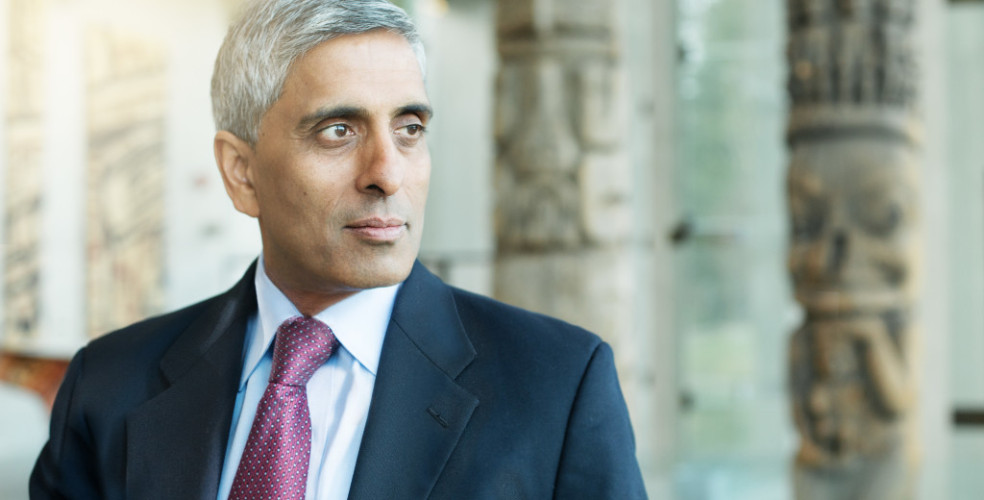Like this article? rabble is reader-supported journalism. Chip in to keep stories like these coming.
After months of speculation following the sudden resignation of former President Arvind Gupta, the UBC Faculty Association (UBCFA) is calling for an independent investigation into the incident.
In a statement, the association demanded that an open investigation take place, and that it involve all levels of university life — faculty, staff, alumni, and students. “Given the events that have unfolded thus far and the information that has been revealed,” the statement read, “we believe it is time for an external review of the UBC Board and its practices.”
In addition to the call for an external review, the faculty association has circulated a petition of non-confidence in the board. Since its creation, more than 450 current faculty members have signed on.
The call comes after months of speculation as to the nature of Gupta’s resignation, which occurred only one year into his five-year term. The university has yet to provide an explanation for the departure, nor for the series of secret activities conducted by board members in the months leading up to Gupta’s resignation.
If the association has its demands met, one can only imagine what such a review might find. Even now, the resulting media furor has launched the issue back into the public spotlight, where a host of new developments continue to arise.
Particularly damning is a collection of documents — some leaked, and some accessed through Access to Information requests — that details a growing rift between Gupta and other members of the board. Among them is a letter to Gupta concerning a meeting on May 18, penned by John Montalbano, the former chair.
Montalbano identified “creating an environment of trust” as “the most critical issue” of Gupta’s tenure, adding that “to be completely transparent with you, we are still not fully certain that you fully appreciate the scope of your accountability.”
“You are deemed too quick to engage in debate in a confrontational or dismissive manner, which is demoralizing to a group of executives in fear of their employment security,” he added.
For his part, Gupta has since broken his silence on the matter and appeared on CBC Vancouver to discuss his conflict with the board. “I now regret…resigning from the presidency and not pushing back harder from the board,” he told The Early Edition.
In a statement, he added “what was published is a one-sided representation of what transpired in the months prior to my resignation…The assertions in the released documents were not based on facts or evidence given to me at any time.”
Though the accusations are no doubt critical, the case of Gupta’s resignation requires more than name-calling and motive to be solved. Montalbano wrote of trust and accountability in his May 18 letter, but the actions of the board have been far from these ideals.
On July 27, just two days before Gupta announced his resignation, he received an emailed request to meet with Montalbano and Chris Peet, a provincially appointed board member. When Gupta asked about the meeting’s purpose, Montalbano responded they “wished to have a quick, confidential discussion, not captured on e-mail.”
His comments bring to light a broader issue. Media outlets have largely treated Gupta’s resignation as a power struggle between university elites; however, it should be asked how the board is able to operate in near-total secrecy.
Just two days after Gupta’s resignation, another exchange took place: Reny Kahlon, the board’s secretariat, informed all members about an unscheduled, in camera meeting. Sent by email, the notice stated the meeting would be held off-campus at Harris & Company LLP, on 550 Burrard Street.
As it turns out, that meeting would likely have a significant impact on how things proceeded for the next few months. According to the leaked documents, one of the reasons for hosting the ad-hoc gathering was “to appoint a further Special Committee and to confer upon that Special Committee the power and authority to: 1) deal with any issues or matters that may be related to the resignation by Professor Arvind Gupta of his appointment as President of the University of British Columbia and the appointment of interim successor(s) to the President…”
The emails point to a continued inclination to secrecy amongst board members. As the public eye remains fixed on the university, it seems UBC may be forced to respond to the matter.
On Feb.11, interim president Martha Piper and new board chairman Stuart Belkin released an open letter to the public affirming the university’s commitment to “open dialogue” about its governance. The letter invites faculty, staff and students to a board of governors meeting in April.
“We take seriously the concerns expressed about board governance at the university,” the letter reads, “and we are committed to an ongoing evaluation of board processes and the adoption of best practices.”
It is still unclear what best practices the university intends to adopt, or what it considers open governance. Until the statement is met with affirmative action, it seems likely the number of signatures on the petition of non-confidence will continue steadily climbing.
Like this article? rabble is reader-supported journalism. Chip in to keep stories like these coming.



